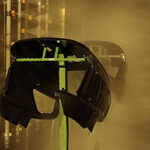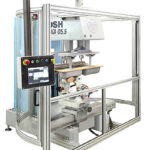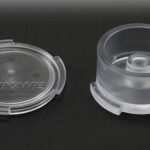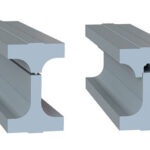by Don Stankus, operations manager, Plasti-Paint, Inc. - DeWitt, Iowa What's the largest "troubleshooting" focus at your plant? At our plant, the biggest source of quality defects in the painted part is mold-related. Plastic is painted for a variety of reasons, including aesthetics, for UV protection and to hide manufacturing defects. There are times paint can successfully … [Read more...] about Ask the Expert: Painting Plastics
Articles
Tech Watch: TOSH’s Logica 05.5 Pad Printer
by Lara Copeland, contributing editor Pad printing, a printing process that transfers 2D images onto 3D objects, extends into every sector and is used on many products - from coffee makers to fashion accessories, shoes to beverage containers and much more. Since the early 1980s, TOSH Srl, Rozzano, Italy, has been applying stepper motor technology for pad printing. Its new … [Read more...] about Tech Watch: TOSH’s Logica 05.5 Pad Printer
Utilizing Dynamic Hold Capability of Servo-Driven Ultrasonic Welders
by Alex Savitski, Ph.D.; Hardik Pathak; Leo Klinstein; Kenneth Holt; and David Cermak; Dukane IAS, LLC Ultrasonic welding of thermoplastics is widely used by many industries to fuse together two parts in a short time without introducing additional consumables, such as fasteners, adhesives or solvents. The recent development of servo-driven ultrasonic welders introduces … [Read more...] about Utilizing Dynamic Hold Capability of Servo-Driven Ultrasonic Welders
2017 IMDA Award Winners
The In-Mold Decorating Association is a trade association representing molders, printers, material suppliers, equipment suppliers and others committed to the development and growth of in-mold labeling and decorating products, technologies and markets. Its mission is to raise the level of awareness and acceptance of in-mold decorated durable products and in-mold labeled … [Read more...] about 2017 IMDA Award Winners
3D-Printed Plastic Parts: To Weld or Not to Weld?
by Trevor Larcheveque, Branson Ultrasonics Corp. 3D printing (3DP) now is widely adopted for prototyping and developing new product designs because it allows plastic component and part prototypes to be developed, produced, assessed and modified far more quickly and economically than traditional injection-molded plastic parts, which require significant up-front investment in … [Read more...] about 3D-Printed Plastic Parts: To Weld or Not to Weld?







